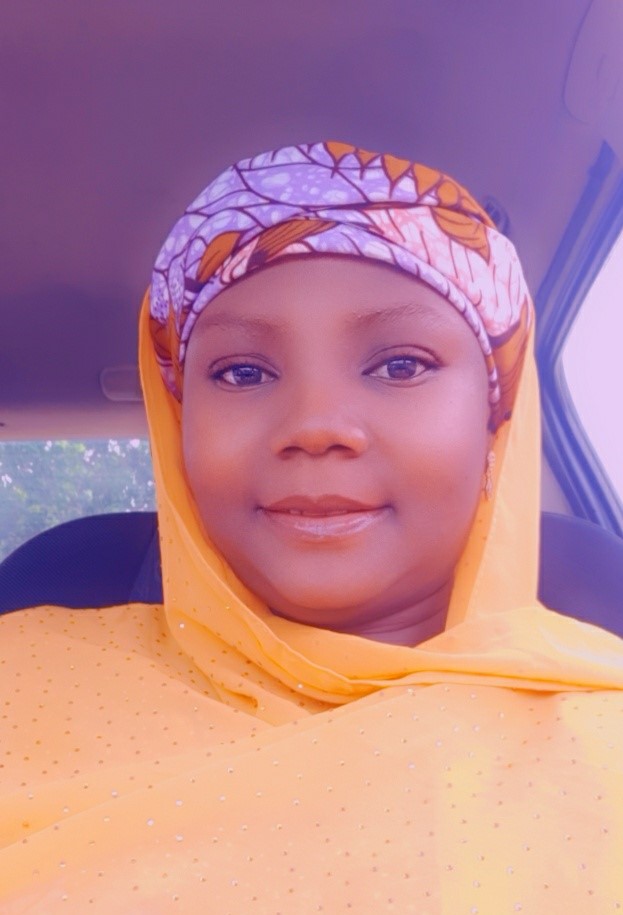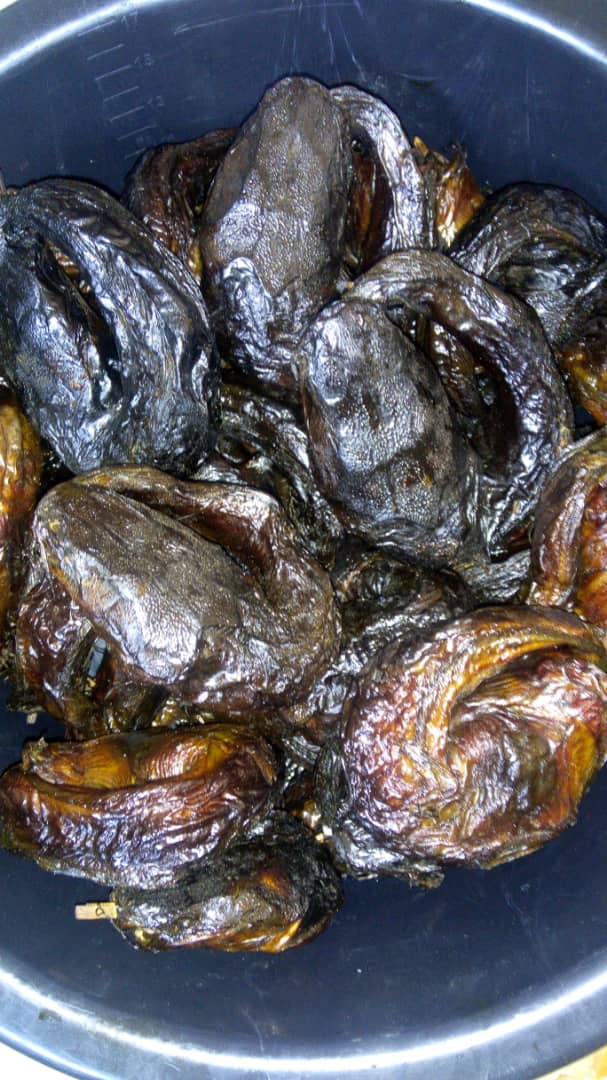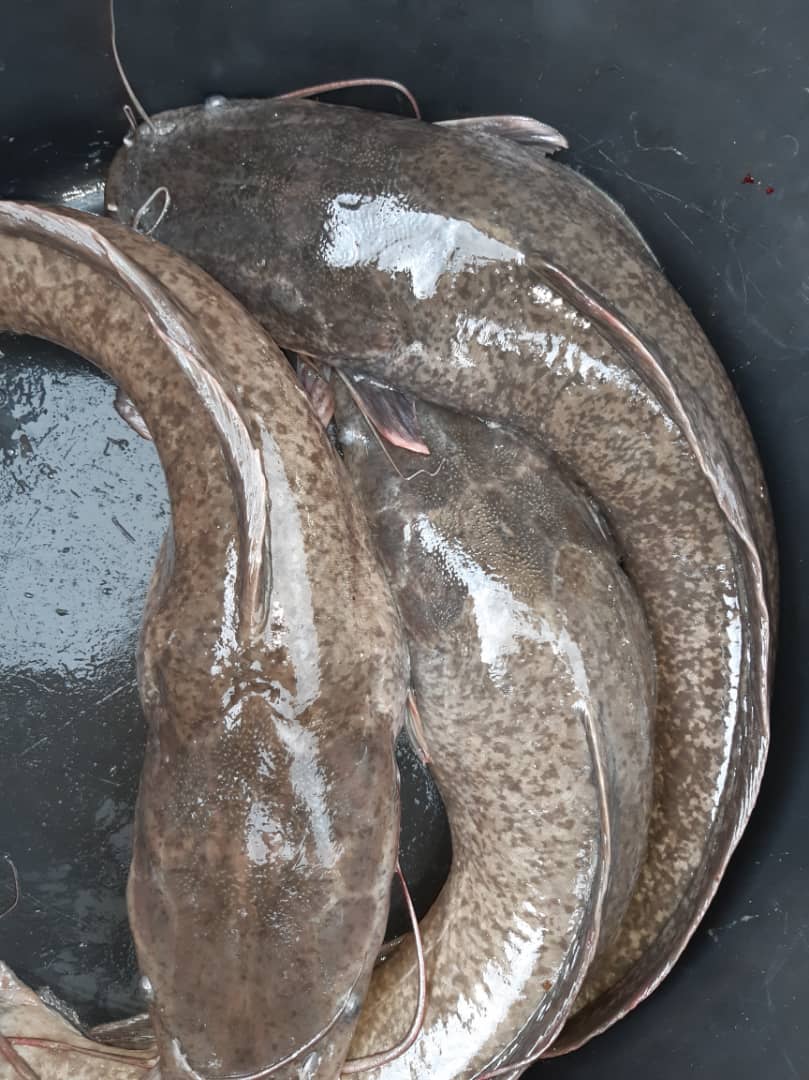
#TEFALUMNICORNER: Maymunat the Neoteric Fish Farmer
Agriculture remains one of the largest sectors in Nigeria contributing a good percentage to the nation’s GDP and employs a good number of the country’s labour force.
Today, on ‘TEF Alumni Corner’, we are ringing up the curtain on Maymunat Salihu Ahmad, one of our TEF Alumni in Bauchi state, Nigeria, who is exploring the agricultural sector of the economy.


Q: Can you tell us about your business?
A: My business is Catfish farming. Catfish Farming is the most popular (but still underexploited) and very lucrative aquaculture business in Nigeria. There is high scope for the industry to expand and enhance food and nutritional security while contributing to economic growth.
Essence-Aqua Fish Farms is a start-up farm with team experience in the agric sector over the years. We will be introducing modern fish farming techniques soon that will help us stand ahead of our competitors.
Q: What inspired your business idea?
A: I’m sure you know that catfish farming in Nigeria has become one of the most commonly practised fish farming businesses, with a lot of back benefits. The high demand and consumption of fish have made the business very profitable if well-managed. That’s what inspired me.
Q: How has receiving the seed capital, training, mentorship and networking support from the Tony Elumelu Foundation improved your business?
A: The Seed capital is the initial investment into my business provided by venture capitalists or angel investors to help it grow.
The networking, training and mentorship programmes have also played a huge part in my growth as a person and the growth of the business, I got to learn a lot of things during the programme which I’ve applied to my business, and I’m seeing positive results.
Q: After training and mentorship from the TEF Entrepreneurship Programme, how has your operational model changed?
A: Firstly, with access to free capital with which to execute my ideas, there was no need for loans and collateral. The programme exposed me to entrepreneurs of like minds with whom I network and share ideas with. With the training and mentorship, there have been a lot of improvements in my business compared to when I first started out.
Q: What would you define as your business’ most valuable proposition?
A: That would be the introduction to the Fish Egg Hatching system because majority of the fish farmers are usually buying their fingerlings from the market. But for me, I am hatching my own in my farm and then sell it to the buyers.
Also, Hatcheries are the backbone of the aquaculture, or aquafarming, where multiple species of fish, mollusks, crustaceans, and aquatic plants, algae, and other organisms are grown in a controlled manner.
Q: What have you enjoyed most about starting your own business?
A: For me, one of the benefits of owning your own business is the flexibility that comes with it. I enjoy working from wherever I want and setting my own hours.
Q: What do you find most challenging about being an entrepreneur?
A: It is usually financial issues, social rejection, facing criticism, dealing with stress and self doubt, hiring employees for the first time and finding customers.
You might be warned repeatedly about the various ways your business can fail. A lot of people truly do think that it’s more stable to depend on a tenuous job at a brick-and-mortar than to be the head of your own company.
Sometimes critics get personal. They’ll feel jealous or threatened by your independence and try to magnify anything negative they can find, projecting their own insecurities onto you.
Q: Where do you see your business in the next five years?
A: I am hoping to meet the international standards by God’s will. By international standards, I mean being able to tranport my smoked fish to the other countries of the world.
Q: What has been your most significant flop as an entrepreneur, and what did you learn from it?
A: Lack of training and expertise is the most significant flop. I have come to understand that there is need to train the fish farmers on integrated fish farming and monitor the impact of the training in their businesses. This can also offer economic improvement while lessening the adverse environment.
Q: What is your single most important achievement so far?
A: Being able to double my team and growing my own business.
Q: How do you define success?
A: Success is defined by action and innovation. A lot of my successes are contingent upon the success of the artists I represent. I try to think about that and think more about how I can add value and push my career forward.
Q: What advice would you give other African entrepreneurs, especially those just starting their entrepreneurial careers?
A: My advice to them is to reach out to a startup advisor, it is an industry with expertise and experience that helps new businesses get on the right track for growth. They share their business knowledge, networking connections, potential investors, and skills, they will help you to make fewer mistakes as you embark on your entrepreneurial career journey.
Above all, there is need to believe in yourself as an entrepreneur and know that you can do it.
~ Author: Chinenye Akandu
